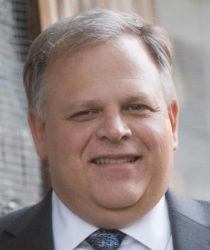The University of Manitoba’s Department of Engineering has a strong Power Systems group. At the time, Dr. Glenn Swift had a student, Zhiying Zhang, working on his PhD thesis, which embodied the very cool concept that a transformer’s “standard operating life” between oil change and inspection (typically 7 years, by convention) could be extended if the internal temperature was monitored to take into account light loading. Conversely, you could temporarily overload a transformer within reasonable limits, if you took into account the loss of life due to the extra heat generated within the transformer. For instance, here in the north, during the wintertime, you could readily load a transformer for 115% of rating, say, with minimal effect on the life of the transformer, as long as you could model the heat and its affect on life.
As a testbed for their ideas, the university first used a NEC uPD7720 fixed-point DSP in a custom assembly, then moved to a PC-based solution which used a Spectrum Digital PC card containing a TI TMS320C30 floating-point DSP. The university selected Vansco as their partner to build their designs.
The design was a “2 box solution”, with one chassis containing the CTs and PTs, and the other containing an actual PC motherboard and cards, with an umbilical cord between tpoint and he two chassis.
The DSP was programmed bare-metal in ‘C’ and assembler, while the PC ran MS-DOS (eek) and had its user interface on a classic PC keyboard and monitor. The display was cool, using graphics to display operating quantities and trip levels.
It was Dr. Swift who coined the term T-PRO, and APT as short for “Alpha Power Technologies”, although we had to drop the latter after hearing from Alpha Technologies in BC – but “APT Power Technologies” was adopted and stuck. Glenn always was a tireless advocate for a made-in-Manitoba relay.
We did try to market the APT T-PRO, taking it to MIPSYCON and showing it to various utilities in the MAPP region, but it wasn’t quite what they wanted. They wanted a one-box solution… which, later, we decided to develop.

